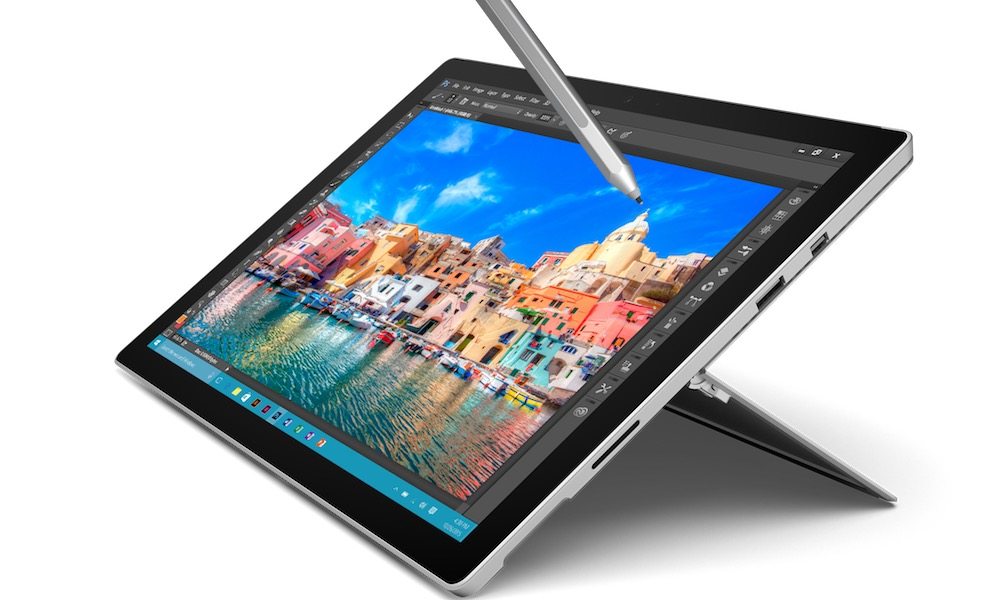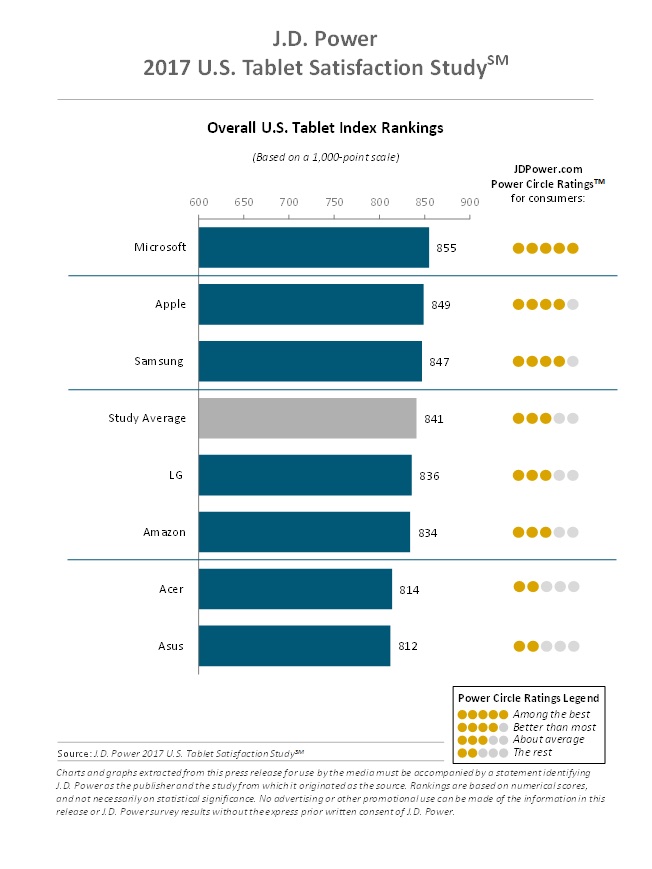Microsoft Surface Narrowly Overtakes iPad in Customer Satisfaction

Image via Microsoft
Toggle Dark Mode
For the first time ever, Microsoft’s Surface tablets narrowly surpassed Apple’s iPad in J.D. Power’s U.S. Tablet Satisfaction Study for 2017.
Based on the market research and analytics firm’s rigorous 1,000-point scale of measurement, Microsoft’s Surface, on the whole, garnered approximately 855 points on J.D. Power’s satisfaction scale — besting Apple’s myriad of iPad offerings by just six points (855 to 849). Samsung, meanwhile, managed to clock in as a not-too-distant third place contender at 847/1,000, followed by LG, Amazon, Acer, and ASUS, in that order.
 Various elements — factors including design, styling, and feature set, most notably — contributed to Microsoft’s first ever emergence as the top-ranking tablet brand, according to Jeff Conklin, J.D. Power’s vice president of service industries.
Various elements — factors including design, styling, and feature set, most notably — contributed to Microsoft’s first ever emergence as the top-ranking tablet brand, according to Jeff Conklin, J.D. Power’s vice president of service industries.
“The Microsoft Surface platform has expanded what tablets can do, and it sets the bar for customer satisfaction,” said Conklin, while adding “These tablet devices are just as capable as many laptops, yet they can still function as standard tablets. This versatility is central to their appeal and success.
According to the study’s finding’s, Surface users account for the highest incidences of accessory use. These include a stylus, for example, which is used by 48% of Surface owners in comparison to a 27% industry average; a physical keyboard, used by 51% of Surface owners in relation to an overall 14% industry average; and a standalone Bluetooth or USB-connected mouse, which is reportedly utilized by 27% of Surface owners in relation to the industry average of just 6%.
Moreover, Microsoft was the highest performer in categories measuring features, including factors such as the variety of pre-loaded applications available, internet connectivity, and the overall availability of manufacturer-supported accessories. The Redmond, Washington-based PC-maker also clocked the highest rankings in categories such as the overall variety of input/output connectivity options like USB, microSD card reader, and Mini DisplayPort, and the amount of available storage.
Attributes including the overall size of the tablet, the attractiveness of its design, and the quality of materials used in its construction were also among Microsoft’s strong suits.
Interestingly, Microsoft’s Surface appears to have performed quite well among “younger customers,” for example, college students and young working professionals, who may be more likely to consider the value of productivity features in making their investment. Case and point: when asking the younger population whether or not they “consider their tablet important in performing their job well,” Surface users resoundingly indicated yes, it’s “very important.” Jobs that entail tasks such as browsing the internet, emailing, and word processing garnered 90%, 76%, and 63% of Surface users, in relation to industry averages of 75%, 61%, and 30%, respectively.
These findings are particularly interesting, perhaps most of all, in light of Apple’s aggressive push to pitch its iPad Pro as a viable laptop replacement. Of course, while the results of J.D. Power’s study make it resoundingly clear that Surface is more viable as an actual laptop, we always have the iPad Pro 2 and iOS 11 to look forward to in hopes they’ll up the ante in Apple’s favor.






